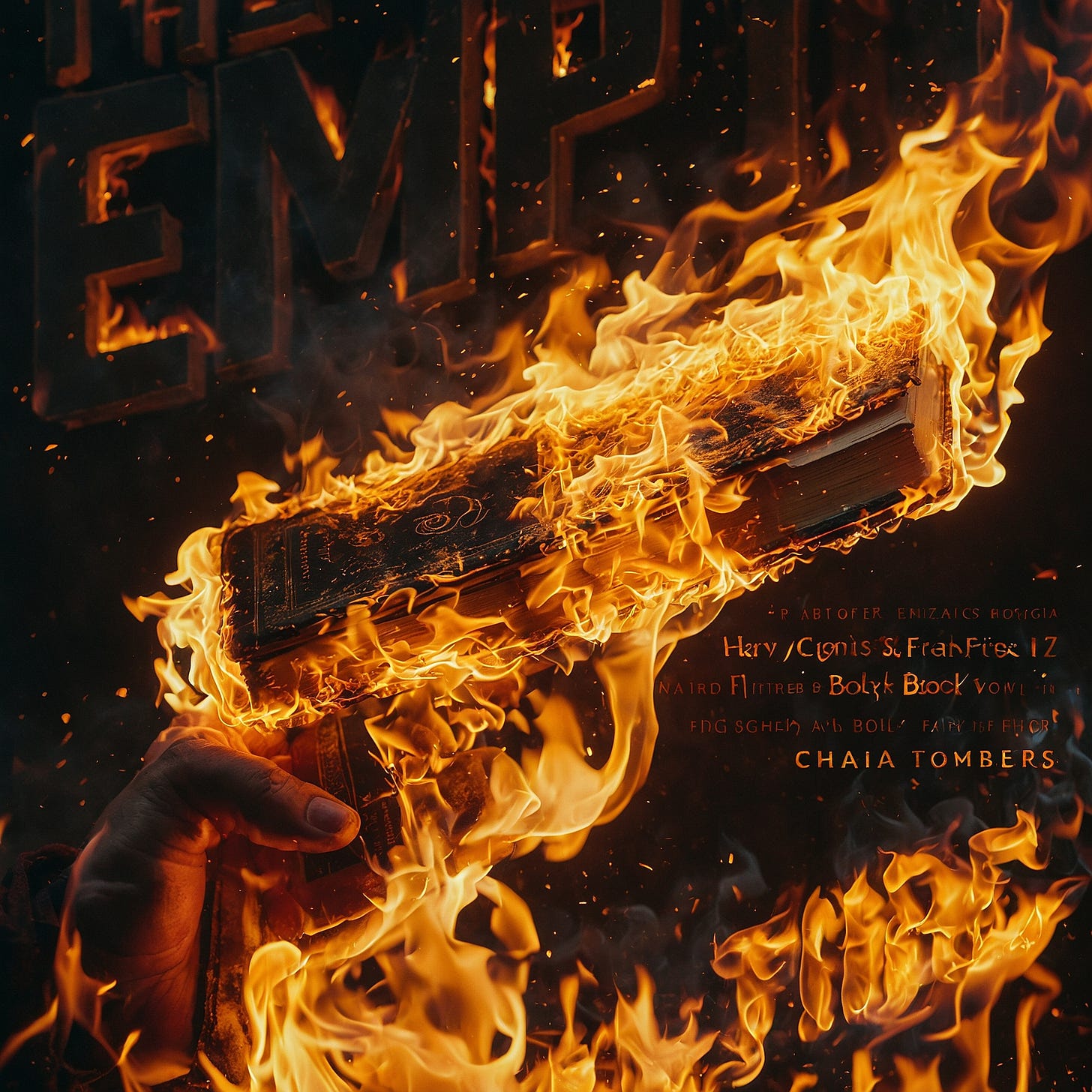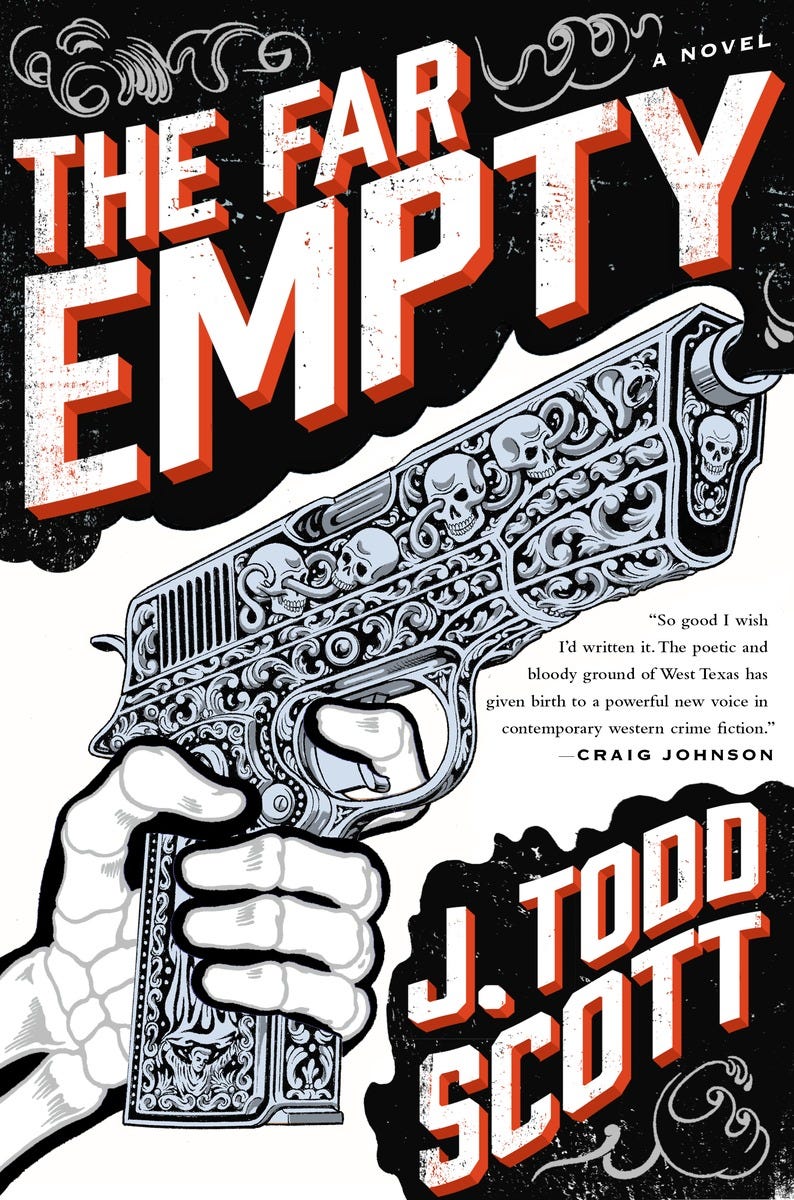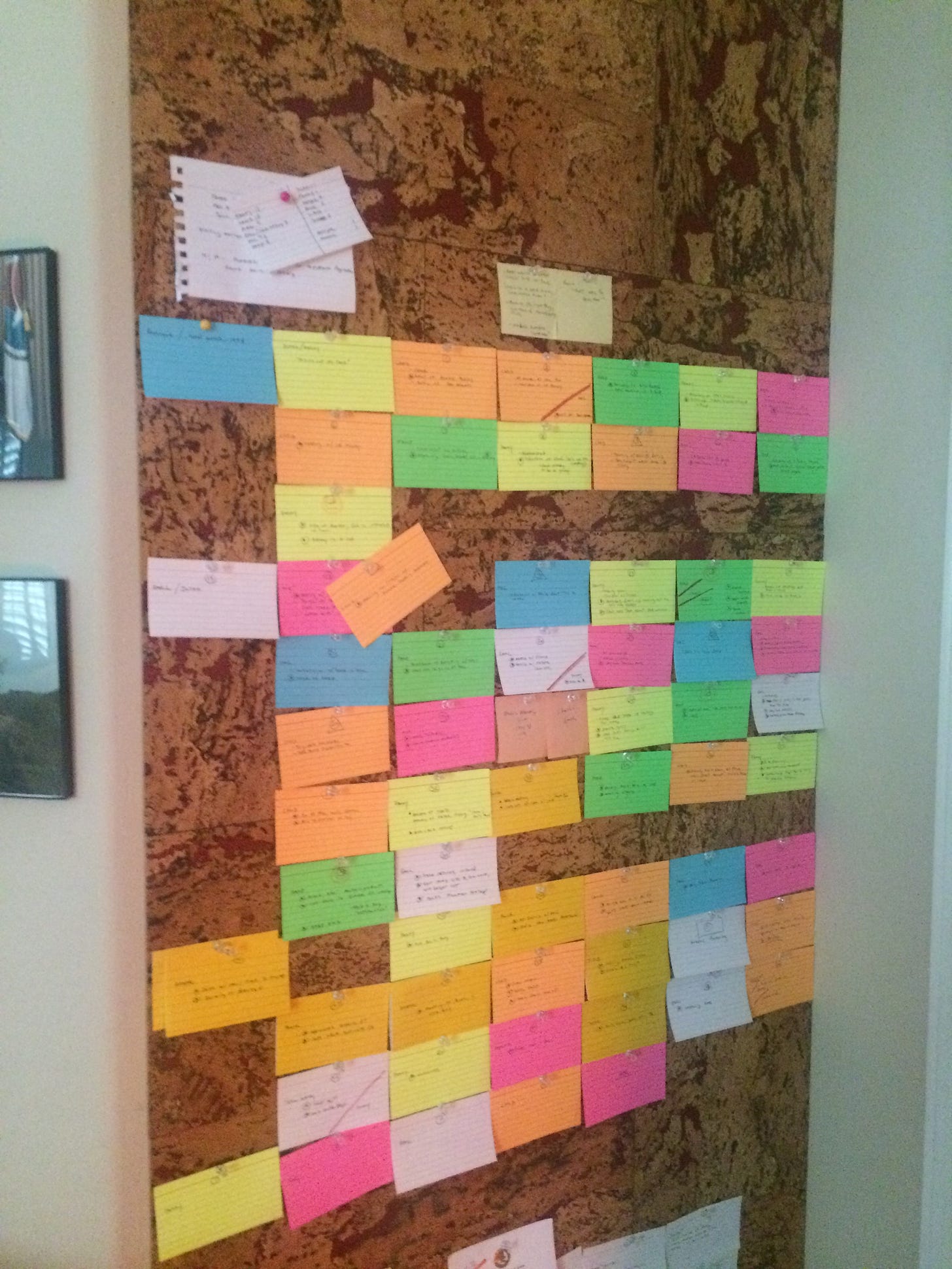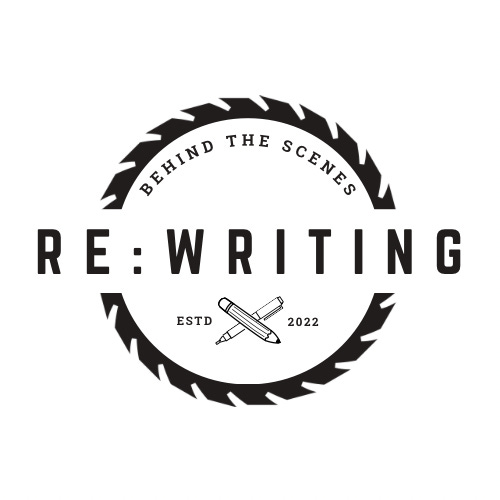I’ve been pretty locked into the same writing process ever since my first novel.
I don’t traditionally plot or outline, but rather dive headfirst right into the first draft.
I’m what they call a “pantser,” i.e., I write by the seat of my pants.
But, as I crawl through that the first, often exploratory draft, I do develop a skeletal beat board as I go. That board allows me to eyeball the book from 30,000 feet and gives me something to refer back to as I begin my revision passes.
And I typically do three full revision passes after that first draft—
Pass 1 to fix all the huge plot and character problems…
Pass 2 to fix all the smaller problems I created while working thru Pass 1…
Pass 3 to dig deep on the language itself, where I really hone word choice, grammar, syntax; I guess this is what some might call the “voice” pass.
So, this has been my process since The Far Empty. It’s served me well through six published novels, and a few more sitting in drawers. However, after I expanded into screenwriting and spent some real time in TV writer’s rooms—where more traditional outlining is always the norm—I’ve tried adding an additional step to my process—
A proto-draft I now call a “burn draft.”
This burn draft is a hybrid outline and first draft. I try to race through it as quickly as possible (“burn” through it), not really slowing down for anything. I don’t second guess, I don’t ruminate, I just fucking go. It’ll have full scenes, dialogue, etc., but with little thought to whether any of it is any good, or even if it’s all in the right place. I just get it all down, as much as I can, willingly short-handing a few things (“fight scene”) or leaving a highlighted mark for something I know will need further research. Basically sacrificing (to some extent) quality for quantity.
The reason?
Surprisingly enough, even after all the writing I’ve done, first drafts are still painful and slow for me—I’m truly an awful first draft writer—and although I enjoy the exploratory and revelatory aspects of my traditional first drafts, peeling back the layers, unearthing bits and pieces of the story as I go, I think I put so much pressure on myself to make even those drafts “good” (even though I also know it’s just a first draft and I’ll do plenty of revising later) there’s still this fear that I’m going to second guess or ruminate so much I either get lost in the damn book…or abandon it before I get to the end.
The burn draft allows me to just to get those big chunks of the book down that I can then go back and “revise” into a proper first draft. It’s almost like a trick, a sleight of hand, because writing sucks, but revising is fun! Again, the problem here isn’t outlining per se—I generally know where I want to go with the story, or at least where I want it to land—I just always have to push myself to get there. And somehow this messy and unencumbered burn draft makes getting airborne a little easier.
I was recently listening to Ben Blacker’s excellent podcast—
Where he interviewed Robert Rodat, the screenwriter for Saving Private Ryan. Robert also employs a similar burn draft method, going so far as to printing out this draft and then permanently deleting the electronic copy. He then transcribes these written pages BACK into his first draft, with the idea that physically retyping stuff is such a pain in the ass he’ll only retype the stuff he really, really likes and needs.
I haven’t gone so far as to destroy my own original burn drafts, but it’s a neat approach—literally and figuratively burning up or destroying the original—that really animates the concept.
As I’ve said before, I’m a big believer in process; part of finding your way as a working writer is finding your process. When all else fails—insight, motivation, your so-called“muse”—you can still fall back on process to get started.
But I’m also a believer in constantly examining your process, and changing it, as needed…
Just a quick note, there likely won’t be a newsletter next week; I’ll be on the road and the timing and extent of the travel will make it a little difficult to get it done and out.
That being said, we’ll be back to regularly scheduled programming on August 8th.
As always, feel free to—









Good insight on the process. I'm also a "pantser", but I dwell during those first drafts and they usually provide a good framework.